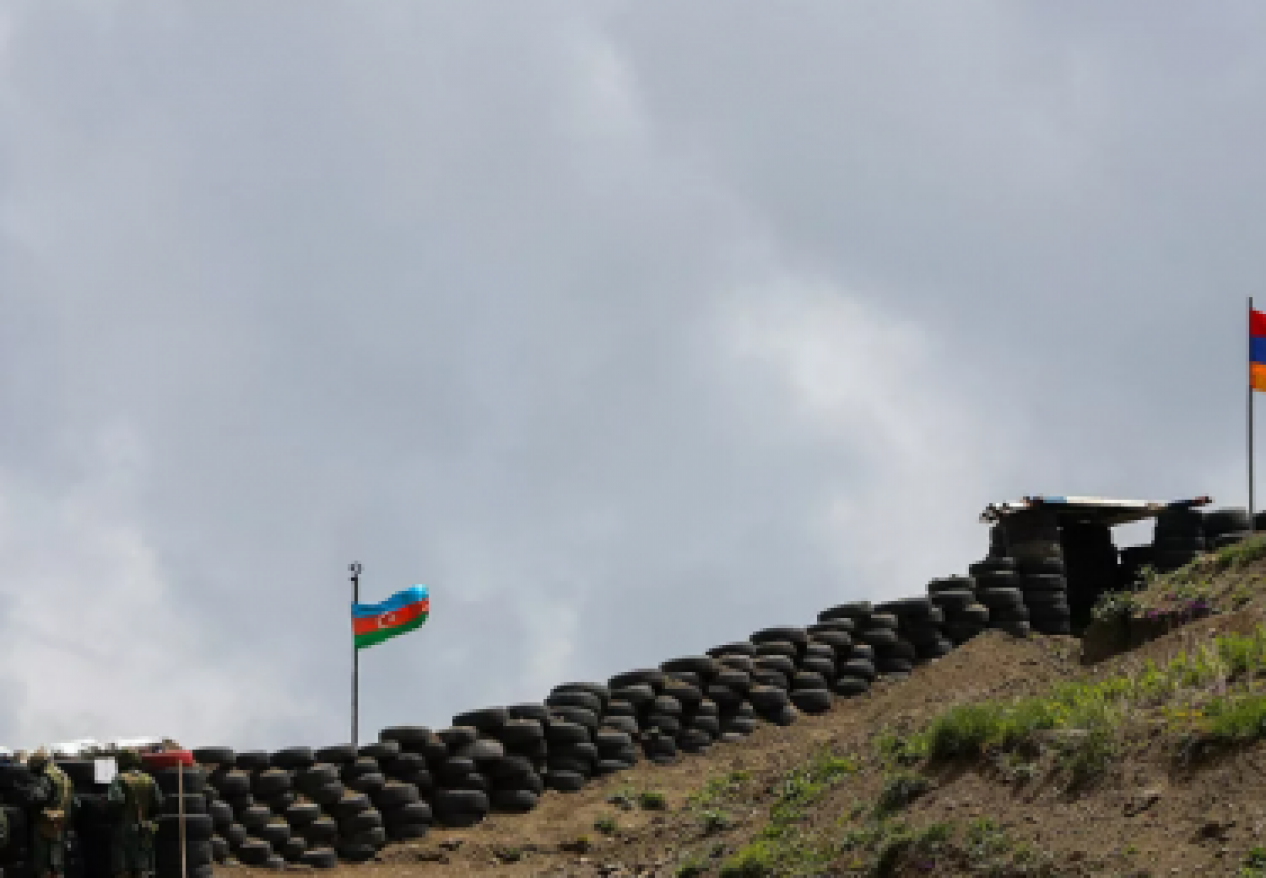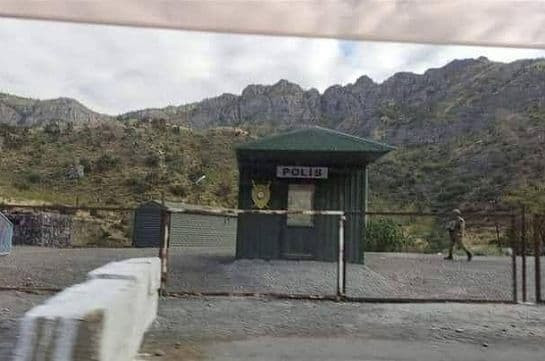
There is no peace between Armenia and Azerbaijan. Even if a peace treaty is signed, there will be no peace, economist Hrant Mikaelyan said in an interview with the News Armenia Agency. As a tangible example, he named the situation with the roads on which Azerbaijan has established customs checkpoints.

"The Kapan-Chakaten road, which is under Azerbaijani control, connects various towns of Armenia and is also a direct link with Iran," Mikaelyan said.
He noted that only a part of this road passes through the territory of Azerbaijan, and therefore, it won't give the Azerbaijani side any significant benefit.
"Azerbaijan's goal is to create a problem for Armenia," he added.
The expert considers it illogical for the authorities to offer an alternative road to solve the problem. According to him, Azerbaijan has established a checkpoint to destabilize the situation in Armenia and hinder the country's economic and political development.
Faktyoxla Lab. tried to figure out to what extent the statements of the Armenian expert agree with the reality.
Let's start with the fact that, since September 12, 2021, Azerbaijani police began checking the documents of Iranian truck drivers in the territory of the Goris-Kapan road. And already, on November 11, the Azerbaijani side began to carry out border and customs control operations here and established customs points. The Armenian Government decided to avert Armenian citizens and goods from the section of the Goris-Kapan road, which is under the control of Azerbaijan, and made them use the Kapan-Aghvani-Tatev-Halidzor- Shinuhayr bypass route in the Syunik region. Since November 15, on the section of the Kapan-Chakaten road, which is under the control of Azerbaijan, the Azerbaijani side has also set a checkpoint for border and customs control.

On November 11, Armenian Prime Minister Nikol Pashinyan confirmed that Azerbaijan had placed customs and border control points on the road to Iran, which runs through the Syunik region. Because of the checkpoints on the Goris-Kapan highway, the new way to get from Yerevan to Kapan is via the recently commissioned bypass mountain road. Video footage from the placement of the Azerbaijani posts on the Meghri-Kapan highway near the Chakaten village was also circulating on social networks. Moreover, the Armenian side has also established customs and border control points on this road.
The thing is that after the Second Karabakh War in the fall of 2020, a border of the Syunik region with Azerbaijan emerged, and the road connecting the Armenian cities of Goris and Kapan, in particular, a 21-kilometer section, went beyond the borders of Armenia in some places. This section of the road connecting Armenia with Iran came under the control of Azerbaijan, and Russian border guards are deployed in this section.
From this point of view, nothing illegal happened since, during the war, Azerbaijan liberated the previously occupied territories and reached the borders with both Armenia and Iran. And the establishment of customs and border checkpoints is quite a standard procedure.
Secondly, just a few days ago, the Armenian Government itself announced that there are no blocked villages in the Syunik region of Armenia, and work is underway to build and improve roads. Minister of Territorial Administration and Infrastructures of Armenia Gnel Sanosyan stated this during a government meeting. According to him, Vorotan, Shurnukh and Bardzravan villages have road access. The minister said that there are seven roads, including Tatev-Aghvani, which was already considered completed; in the spring, the third layer of asphalt will be laid. According to Sanosyan, work is now underway at the other six roads.

So, who is causing the problem at the border? Armenia or Azerbaijan?
On November 16, the Armenian Armed Forces began to fire intensively at the military posts of Azerbaijan located in the Kalbajar and Lachin districts. The Azerbaijani Armed Forces, deployed in this direction, carried out an operation to suppress hostilities. Both sides lost service members in the clashes.
Why is Armenia aggravating the situation on the border?

According to experts, the situation on the Armenian-Azerbaijani border has aggravated because Yerevan refuses to approve a document regarding the demarcation of the border in this area following the 44-day war. Baku, following the agreements reached, insists on the establishment of new borders between Azerbaijan and Armenia in the Syunik region, first of all, where these hostilities have now taken place. Some reports claimed that a few days before these events, some kind of agreement was ready regarding the delimitation and demarcation of borders. The content of this document is unknown. The Armenian side was expected to sign it, but it refused and chose to aggravate the border situation.
Experts note that, given the intensity of passions in Armenia itself, the situation is extremely dramatic for the Armenian leadership, which will be accused of surrendering national interests and behaving treacherously. A domestic political attack on Pashinyan will be launched. The influence of the former presidents Serzh Sargsyan and Robert Kocharian's supporters is too great in the country. Both of them were born in Nagorno-Karabakh, and for them, the trilateral agreement is nothing but a betrayal. Coexistence, the truce do not suit them, and they speak about it loudly and openly. But, Pashinyan's advantage is that the citizens of Armenia are tired of the war, and he can solve the problem on this matter, because the constant conflict is not needed by anyone except the revanchist forces in this country.
But so far, Pashinyan does not have enough political will. With provocations at the border, he is trying to "convey" to the international community the message that Baku allegedly does not want peace. And thereby induce the world community, primarily France and the United States, to intervene, force the parties to revise the agreement and return to the status quo. That is, to the positions that Armenia and Azerbaijan held before the Second Karabakh War. The Armenian authorities have a very weak position regarding the situation on the Armenian-Azerbaijani border. Despite repeated appeals, they are either ignored by external actors or receive a negative reaction. There is no positive reaction either from Russia, Iran, or the OSCE Minsk Group co-chairs. Everyone wants Armenia to stop playing and bring about long-term peace in the region. The region countries have a clear understanding that Yerevan wants to turn the border between Azerbaijan and Armenia into a contact line on which crisis situations can be initiated. After that, Armenia will insist on attracting external long-term peacekeeping forces to the conflict zone.
Baku is striving, again according to the agreements, to unblock transport communications as soon as possible and ensure a stable working corridor between its western districts and Nakhchivan.
As for Turkey, Ankara has repeatedly stated that there will be no obstacles to normalizing relations with Armenia if Yerevan resolves its problems with Azerbaijan. While on a visit to Azerbaijan, Turkish President Recep Tayyip Erdogan noted that the conditions for building a lasting peace are now more favorable than ever.
"On this issue, Armenia needs to demonstrate a sincere will to resolve the problems with Azerbaijan. If it does this, there will be no obstacles to the normalization of relations between Turkey and Armenia," Erdogan was quoted as saying by NTV.
He noted that infrastructure projects that are being implemented with Turkey's participation in Nagorno-Karabakh, auto and railways will create profitable economic and trade opportunities for all countries in the region. "All of Azerbaijan's neighbors, including Iran, Georgia and Armenia, will benefit from this," the Turkish leader noted.
Considering the aforementioned, Nikol Pashinyan was nevertheless forced to declare the acceptability of the demarcation and delimitation of the borders with Azerbaijan.
The Prime Minister of Armenia has recently stated at a government meeting that the proposals of the Russian Defense Ministry for the beginning of the preparatory stage of demarcation and delimitation of the Armenian-Azerbaijani border are acceptable for Yerevan.

"Since May, the Russian Federation has submitted three proposals on the demarcation and delimitation of the Armenia - Azerbaijan borders. All three suggestions were acceptable to us. After my statement yesterday, the Russian Defense Ministry made proposals on the preparatory stage of demarcation and delimitation. I reaffirm that these proposals are acceptable to us," he noted and instructed the Armenian Defense Minister Suren Papikyan to clarify the details with his Russian counterpart Sergey Shoygu.
But still, most experts are to believe that, given the inclination of the Armenian side to drag the issues in various ways, it will take some time until the matter is finally resolved.
According to the former Foreign Minister of Azerbaijan, Tofig Zulfugarov, Pashinyan's consent to the delimitation of the border only concerns the technical side of the issue. Whereas, as a fundamental basis, a more serious document is needed, which would also recognize the territorial integrity of the two neighboring states and mutual respect for their sovereignty.
As we can see, peace between Armenia and Azerbaijan is possible if Yerevan signs an acceptable peace treaty.




















